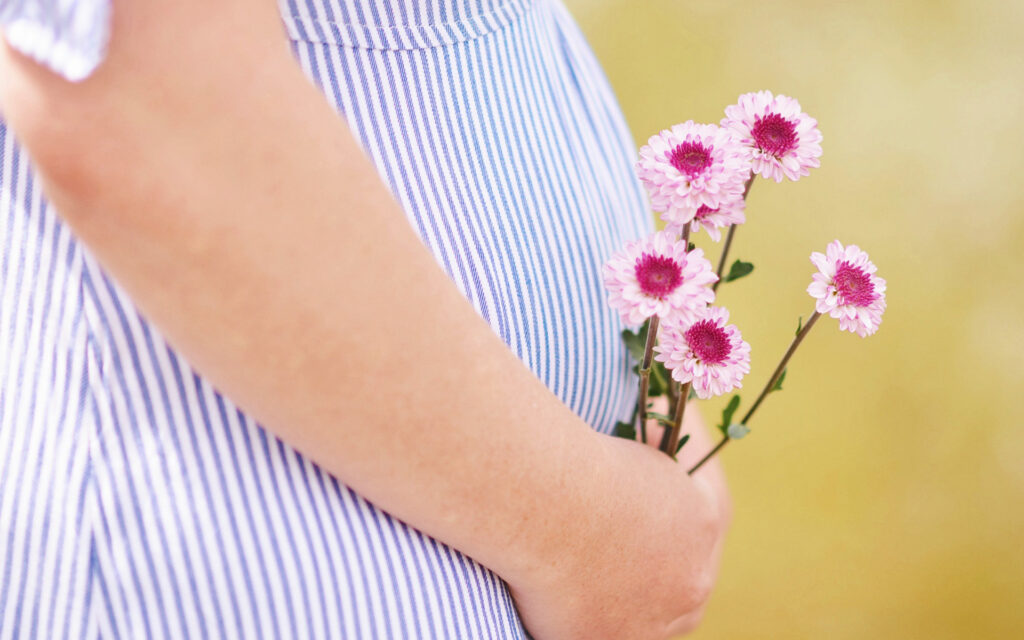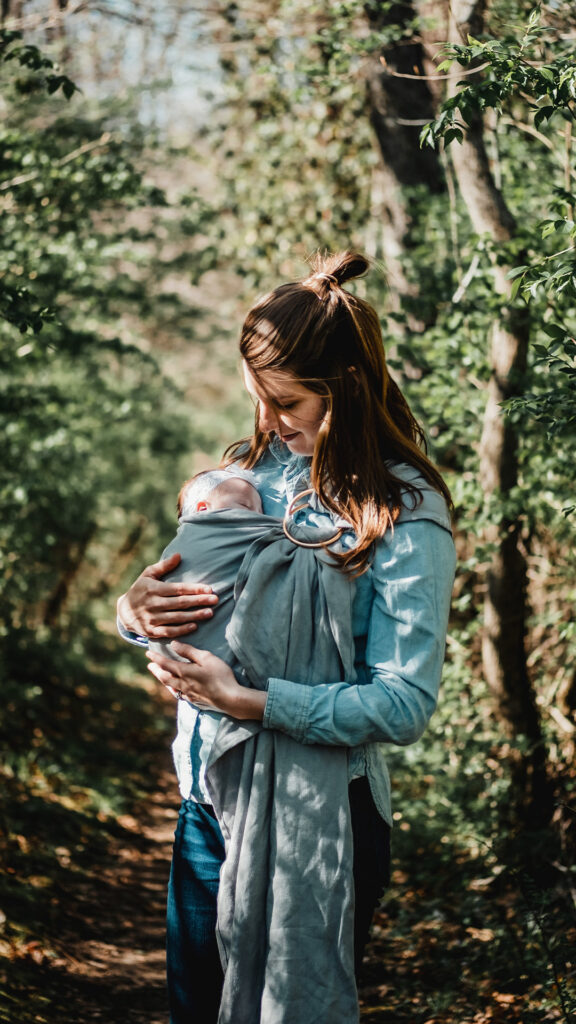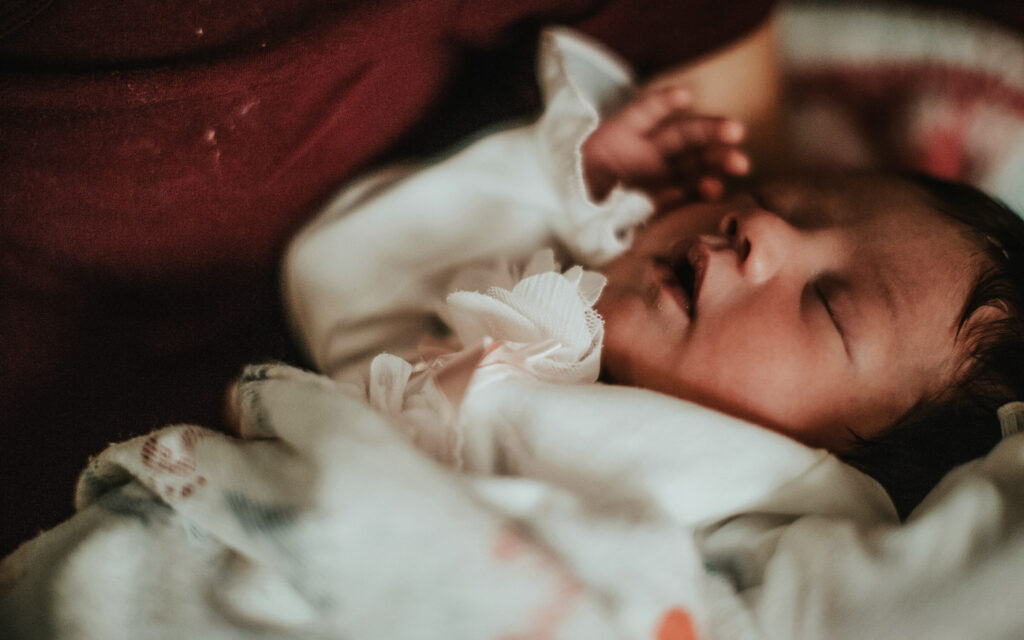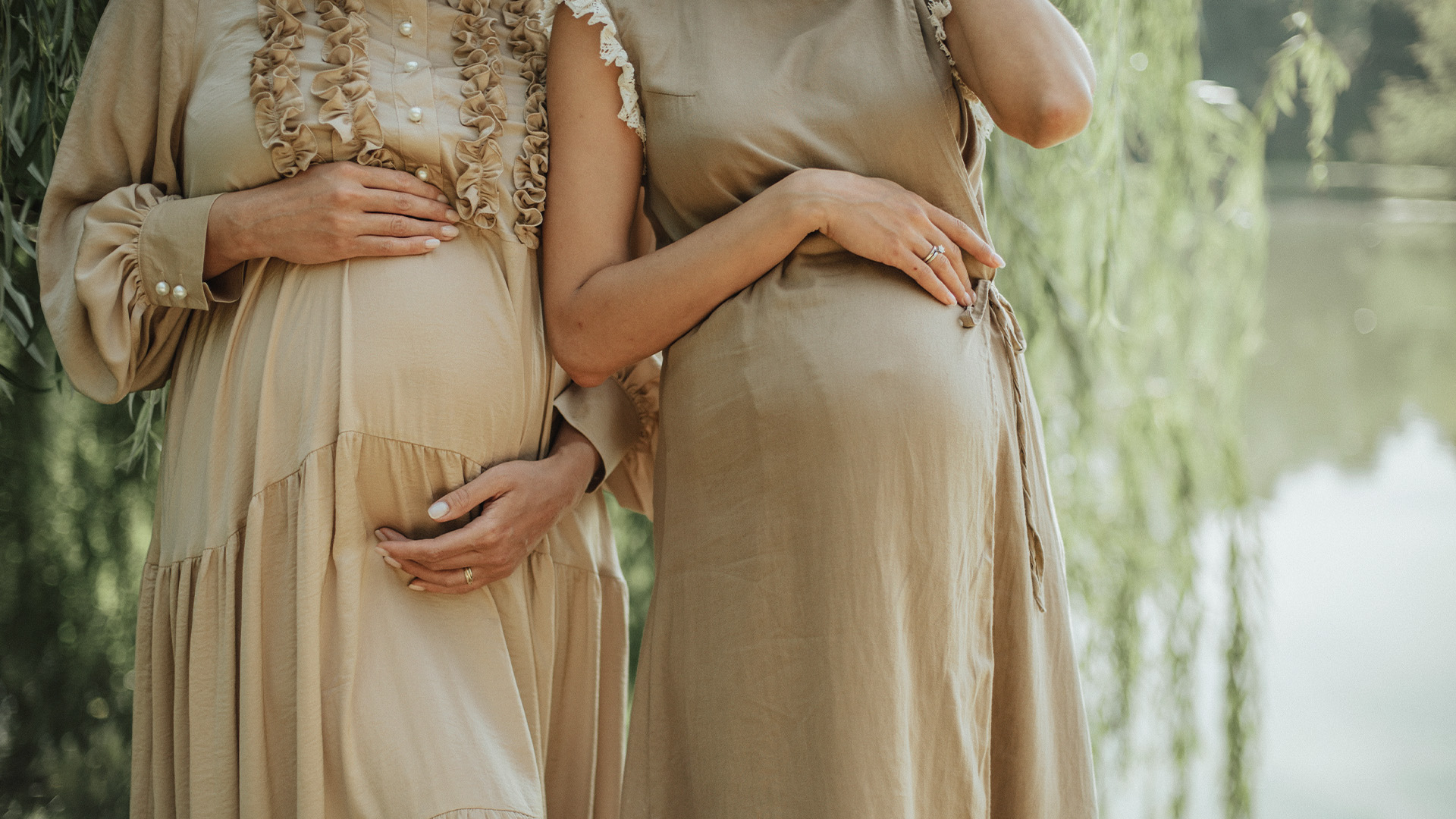Fashion has become an important part of the journey to motherhood. Maternity garments require certain functionality that nowadays must include a style that inspires the mother-to-be.
Social networks and the so-called “mom blogs”, in which influencers share their journey through motherhood, have gained ground in recent times, creating a community and inspiring how to dress from the first stage of pregnancy.
But this fashion is not exempt from the impact on the environment. The limited use of maternity clothing in time contributes to the problem of textile waste generated by this industry. Often, these garments are discarded prematurely, ending up in landfills where they release harmful greenhouse gases during their decomposition or end up in incinerators.

Thinking about the future
Parents as consumers taking care of their children, with the correct information, can make prudent decisions knowing a product or garment before purchasing it.
A joint study conducted by McKinsey & Co. and NielsenIQ looked at the growth in sales of products that claim to be eco-friendly and socially responsible, demonstrating that consumers care about sustainability. There is a clear and substantial correlation between spending and claims related to responsibility in the choice of product packaging.
In the case of maternity fashion, not only do you need comfort in the garments, but also that they do not contain chemicals that are harmful to the skin and health.
Also, because babies have particularly sensitive skin, exposure to harmful chemicals and dyes from synthetic fabrics can cause skin problems such as itching, redness, or rashes.
This is why organic cotton garments are recommended as they do not use harmful chemicals. Like other natural fibers, they are breathable and help regulate body temperature, which is essential for babies’ well-being.

A sustainable approach
Both during pregnancy and after giving birth, mothers adopt different eco-conscious alternatives that are respectful of the planet.
Second-hand fashion or rental are two eco-friendly options that promote the circular economy by reducing the environmental footprint of the textile industry. The Rent The Runway e-commerce platform with its subscription-based rental model is a good choice if you need garments for special occasions or a flexible wardrobe. Another alternative that is being chosen is the exchange of maternity and baby clothes between friends or acquaintances.
In the case of buying new clothes, it is essential to think about quality before quantity to invest in more ethical and sustainable durable maternity garments not only during but also after pregnancy. In other words, durable and good quality garments allow you to buy less and better, passing from person to person, from generation to generation.
Ethical Brands
Fortunately, we can find many firms that are contributing to a positive impact on the environment and social well-being and prioritize sustainable materials, ethical manufacturing, and fair labor practices.
Boob
It is a Swedish maternity and breastfeeding clothing brand that, since 2000, has aimed to support women throughout motherhood.
Boob holds an environmental rating of “Great” on Good On You (a trusted source of sustainability ratings for the fashion industry) by using a high proportion of eco-friendly materials and renewable energy in its supply chain to reduce its climate impact.
In addition, its entire collection is made with sustainable materials whose traceability can be traced from the fiber to the final garment. The use of eco-friendly materials limits the amount of water and chemicals used in production. With leftover materials, they design new products instead of turning them into waste.
Eco-friendly materials include organic cotton, organic wool, recycled polyamide and polyester, Lenzing™️ EcoVero™️, TENCEL™ LYOCELL and TENCEL™ MODAL.
Frugi
It is a British firm committed to the planet that offers maternity, breastfeeding, and baby and children’s clothing that Good On You has rated as “Good”. They are certified to the Global Organic Textile Standard (GOTS) by Soil Association Certification, which annually conducts an audit to ensure continued compliance with the Standard.
Besides, they use recycled polyester made from post-consumer recycled plastic and cotton in conversion, helping farmers with the financial stability needed to become GOTS-certified organic cotton growers.
Frugi is a pioneer in “Recycle Me” certified clothing, whereby its collections are specifically designed to be recycled back into clothing, so that raw materials are not lost, and the Earth’s natural resources are saved.
Bam Loves Boo
It is an Australian unisex children’s clothing brand that is dedicated to making clothes for the little ones, with an environmental rating of “Good” in Good On You.
Their garments are made with a unique fabric: a perfect blend of bamboo and certified organic cotton and ethically sourced, resulting in very soft, stretchy, and breathable garments. It is woven and dyed just for the company, and while this is a 3-month process, it means they will have the exact amount for their collections without the need to generate waste.
It also ensures the treatment and discharge of wastewater in its supply chain and the use of eco-friendly materials limits the amount of chemicals and water used in production.

As consumers, we have the power to drive change in the fashion industry. We can make conscious choices and choose sustainable maternity garment options with ethical and environmentally responsible practices. With this attitude, the needs of today will be met without compromising the capacity of future generations.





